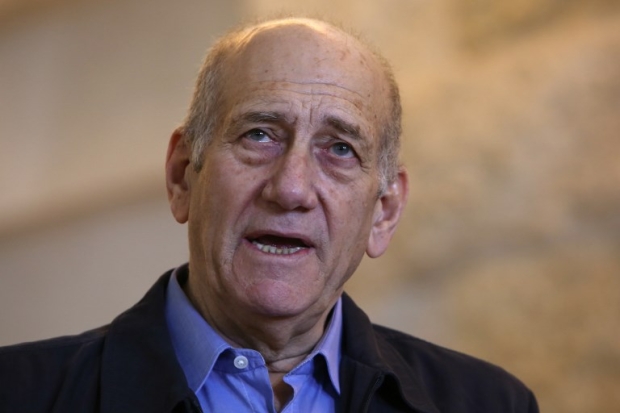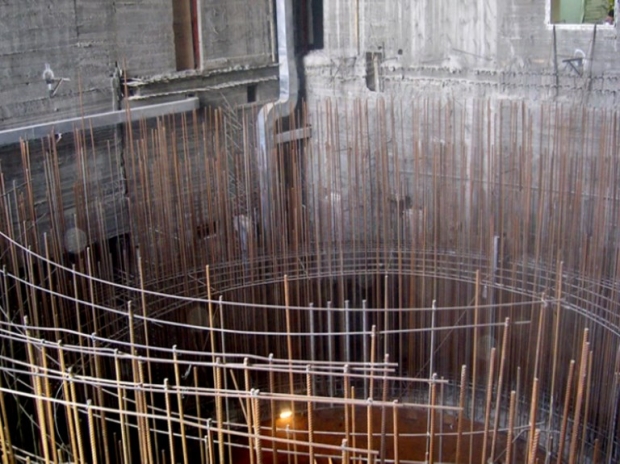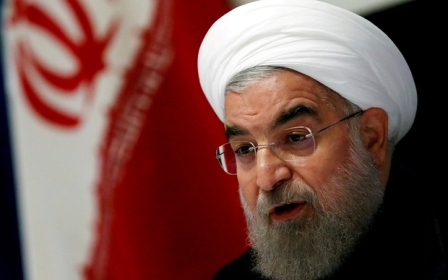Why Israel struck a Syrian nuclear reactor a decade ago

After more than 10 years of silence and strict censorship, Israel is admitting a secret that all of the world has long known.
On Wednesday, Israel’s military and political establishment will allow its former army and intelligence chiefs, as well former cabinet ministers, to tell their versions of how the Israeli Air Force in September 2007 bombed a nuclear reactor that Syria clandestinely built with the help of North Korea.
It was located just outside Deir Ezzor, the largest city in eastern Syria, which was captured in 2014 by Islamic State (IS) forces and held for more than three years.
Just imagine if IS had gotten its hands on plutonium and other elements to build nuclear bombs. Israel’s action – a difficult decision by then-prime minister Ehud Olmert, after he unsuccessfully asked US president George W Bush to bomb the building – prevented the world’s most bloodthirsty terrorists from acquiring the world’s deadliest weapons.
Why now?
After the attack, Syrian President Bashar al-Assad flatly denied that his country had built a nuclear reactor in violation of international commitments to the non-proliferation treaty and the International Atomic Energy Agency (IAEA).
Now, as the veil of secrecy is lifted, there is little nervousness in the Israeli military establishment over the expected reaction from Assad, if he responds at all. Members of the Israeli intelligence expect that Assad will once again swallow his pride and not react. If he does, it will be an admission that he was lying when he denied having a reactor, and proof that he violated international conventions.
It was not built on the dark side of the moon, but in a neighbouring country where we always thought we knew almost everything
- Tamir Pardo, former deputy director of Mossad
One important question is emerging: Why is Israel confirming the raid now? The answer is complex, but the most reliable explanation is that the government was forced by the Supreme Court, which heard appeals by Israeli journalists demanding permission to publish the story based on "Israeli sources". Barring this, Israeli media had to recycle stories published abroad.
No attack deep in enemy territory is easy, but Israel’s American-made F-15 and F-16 jets were protected by sophisticated electronic jamming that blinded Syria’s air defences, and they had no trouble dropping 17 tons of explosives on the target and confirming visually that it had been flattened.
The facility was almost identical to the Yongbyon nuclear complex in North Korea that produced plutonium for nuclear bombs, according to Israeli intelligence officials, and it was only weeks away from beginning to produce highly radioactive materials.
One of Israel’s ‘great achievements’
Israeli ministers and officials are proud of it. Olmert, who later resigned amid accusations of corruption that eventually sent him to jail for 18 months, told Middle East Eye that it was one of his most important and difficult decisions, and that he was proud of it. Even his nemesis, former defence minister Ehud Barak, told MEE that ”Olmert deserves full credit for the brazen decision".
The lifting of the veil of secrecy is also leading to a battle of egos between Israel's two largest intelligence agencies. “The exposure of the reactor is one of the great achievements of Military Intelligence [the agency known by its Hebrew acronym, Aman] in particular, and of Israeli intelligence in general,” said Brigadier General Shalom Dror, who in 2007 was a major in charge of Aman’s research on Syria.
Israel’s highest-ranking general at the time, Chief of Staff Gabi Ashkenazi, recalled receiving reports on many Arab nations from Aman and the Mossad, but none linked the words “Syria” and “nuclear” in any serious way.
“Sure, suspicions arose, but there was no proof,” said Ashkenazi, a retired lieutenant general. “And in intelligence work, there were a lot of suspicions. Syrian nuclear was not a subject considered to be important.”
The role of Abdul Qadeer Khan
The fact that there was any attention paid to this at all was the result of trauma suffered by Israel’s intelligence apparatus near the end of 2003. Late Libyan dictator Muammar Gaddafi publicly admitted that he had a nuclear weapons programme, and Western governments quickly discovered that the knowhow and materials had been sold to the Libyans by Abdul Qadeer Khan, the "father of Pakistan's nuclear bomb”, who later became a freelancer and made a fortune as a nuclear trafficker.
Israel’s spy chiefs winced as they admitted they had made an error comparable to the 1973 war, when Israel was taken by surprise by its neighbour’s armies on Yom Kippur. Israel had not completely ignored Khan: they had strong evidence that he helped Iran launch its unacknowledged military nuclear ambitions. But they did not realise how his sales efforts had succeeded elsewhere.
After the revelation that Gaddafi’s Libya was dangerously advanced in its nuclear work, Israel’s military intelligence chiefs ordered that every scrap of evidence collected – but filed away without much analysis – be looked at again.
Aman found reports of Khan’s visits to Saudi Arabia, Egypt and Syria. Because the first two nations were friends of the United States, it seemed highly unlikely that they would pursue nuclear weapons. The agency doubled its focus on Syria, where Assad had come to power in 2000 by default when his father died after his elder brother, groomed for leadership, perished in a car crash.
Meir Dagan, who was Mossad director from 2002 to 2011 and died two years ago, joined Ashkenazi in asking prime minister Ariel Sharon for an extra budget specifically to look for a nuclear project in Syria. Aman’s renowned Unit 8200 greatly increased its monitoring of all Syrian communications.
The smoking gun
Ibrahim Othman, director of Syria’s Atomic Energy Commission, was considered to be the man who must know the secrets. He became a high-priority target of Israeli intelligence, but Othman and other senior government officials in Damascus were exceedingly cautious.
As already reported outside Israel, Mossad's operatives broke into his hotel room in Vienna, where he had been staying for an IAEA meeting. There, they found a goldmine: Othman left a digital device in the room containing data that, when deciphered by Israeli intelligence laboratories, included photos of Othman in the company of North Korean scientists and of the interior of the facility outside Deir Ezzor, clearly showing that it was a nuclear reactor to produce plutonium.
The photos were the smoking gun to corroborate Israel’s suspicions. The information was rushed to Olmert, who then approached Bush, asking if the US would do something. Bush declined, explaining that US forces were bogged down in Iraq and Afghanistan, and he did not want to open a third front - but he said nothing about an Israeli raid. For Olmert, it was enough: he interpreted this, and rightly so, as a green light and instructed Ashkenazi to prepare an air strike.
- Yossi Melman, intelligence and defence analyst for Maariv and other Israeli media, and Dan Raviv of i24News are co-authors of Spies Against Armageddon: Inside Israel’s Secret Wars.
The views expressed in this article belong to the author and do not necessarily reflect the editorial policy of Middle East Eye.
Photo: This undated image released by the US government shows a building after it was bombed in Syria (US Government/Reuters)
This article is available in French on Middle East Eye French edition.
New MEE newsletter: Jerusalem Dispatch
Sign up to get the latest insights and analysis on Israel-Palestine, alongside Turkey Unpacked and other MEE newsletters
Middle East Eye delivers independent and unrivalled coverage and analysis of the Middle East, North Africa and beyond. To learn more about republishing this content and the associated fees, please fill out this form. More about MEE can be found here.






